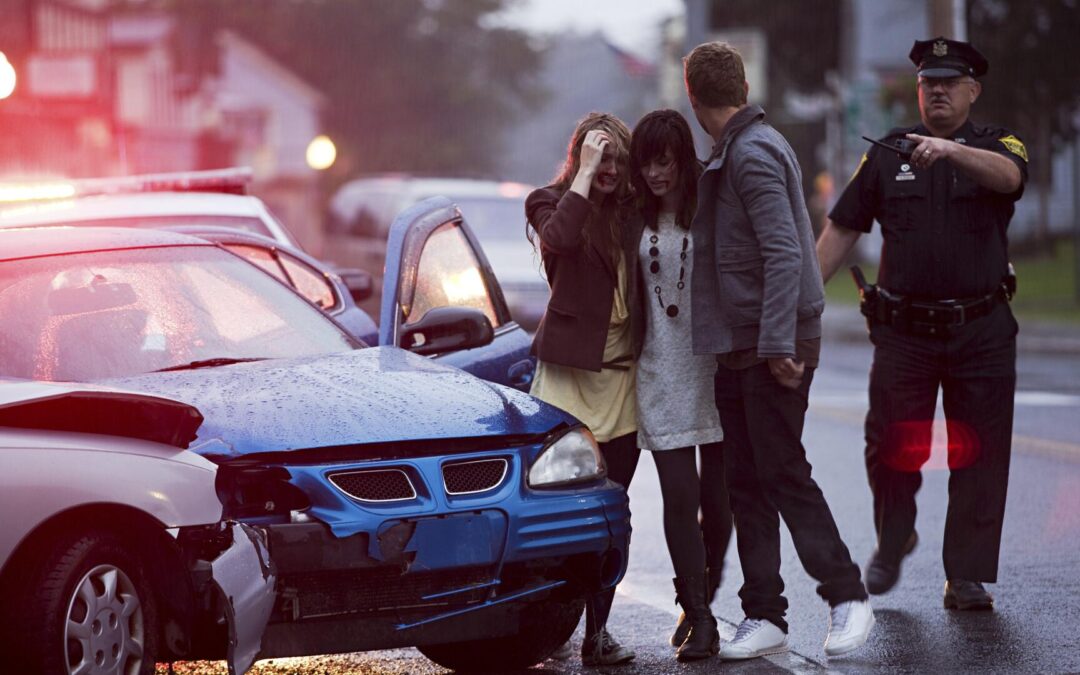Car accidents are an unfortunate reality on the roads of Georgia, leading to significant financial, emotional, and physical consequences. Understanding the leading causes of these accidents can help drivers take preventative measures to stay safe. This detailed guide outlines the top 10 causes of car accidents in Georgia, providing valuable insights and tips to help you avoid them.

1. Distracted Driving
The Prevalence of Distracted Driving
Distracted driving is one of the leading causes of car accidents nationwide, and Georgia is no exception. Activities such as texting, talking on the phone, eating, and using in-car technologies divert the driver’s attention from the road, significantly increasing the risk of an accident.
Georgia’s Hands-Free Law
In response to the growing issue of distracted driving, Georgia implemented the Hands-Free Law in 2018. This law prohibits drivers from holding or supporting a phone with any part of their body. Understanding and adhering to this law is crucial for reducing distracted driving incidents.
Tips to Avoid Distracted Driving
- Use Hands-Free Devices: Invest in hands-free technology for making and receiving calls.
- Set Your GPS Before Driving: Input your destination into your GPS before starting your trip.
- Avoid Eating While Driving: Eat meals before or after your drive to keep your focus on the road.

2. Speeding
The Risks of Speeding
Speeding is a major factor in many car accidents in Georgia. Driving above the speed limit reduces the driver’s ability to react to sudden changes in road conditions, increases stopping distance, and significantly raises the severity of accidents.
Speed Limits in Georgia
Georgia has specific speed limits that drivers must adhere to, depending on the type of road and area. For instance, the speed limit is typically 70 mph on interstate highways, 55 mph on urban interstates, and 25-35 mph in residential areas.
Tips to Avoid Speeding
- Plan Ahead: Allow extra time for your trips to avoid feeling rushed.
- Use Cruise Control: On highways, use cruise control to maintain a constant speed.
- Stay Aware: Continuously monitor your speed and be mindful of speed limit signs.
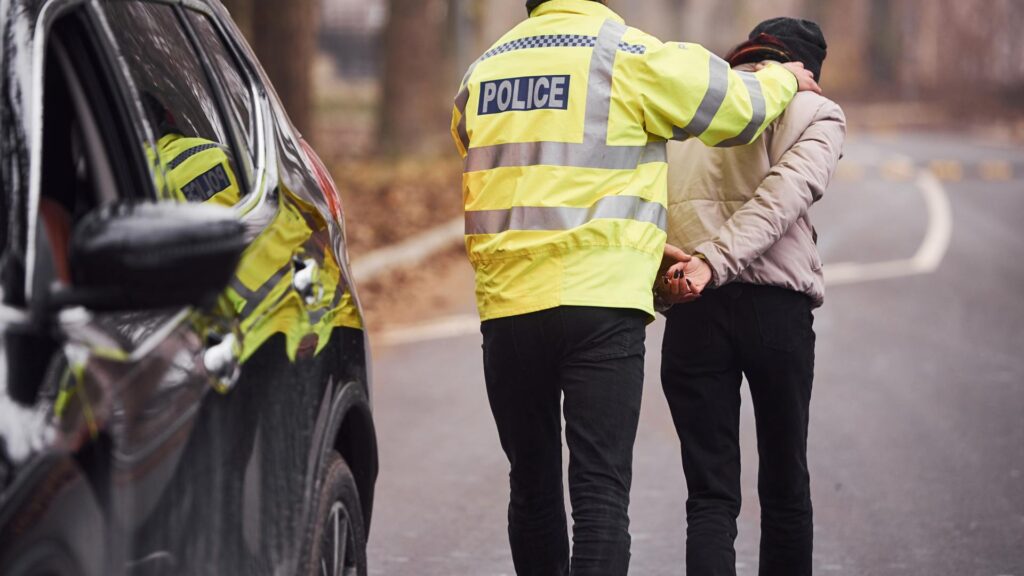
3. Drunk Driving
The Impact of Drunk Driving
Driving under the influence of alcohol is a leading cause of fatal car accidents in Georgia. Alcohol impairs judgment, coordination, and reaction times, making it extremely dangerous to operate a vehicle.
Georgia’s DUI Laws
Georgia has strict DUI (Driving Under the Influence) laws. The legal blood alcohol concentration (BAC) limit is 0.08% for drivers over 21 and 0.02% for drivers under 21. Penalties for DUI can include fines, license suspension, and imprisonment.
Tips to Avoid Drunk Driving
- Designate a Sober Driver: If you plan to drink, arrange for a sober driver or use a rideshare service.
- Stay Overnight: If you are at a gathering, consider staying overnight instead of driving home.
- Know Your Limits: Be aware of how alcohol affects your body and make responsible decisions.

4. Reckless Driving
Understanding Reckless Driving
Reckless driving encompasses a variety of dangerous behaviors, such as aggressive driving, tailgating, weaving in and out of traffic, and excessive speeding. These actions significantly increase the risk of accidents.
Georgia’s Reckless Driving Law
In Georgia, reckless driving is defined as operating a vehicle with a willful disregard for the safety of persons or property. It is considered a misdemeanor, punishable by fines, imprisonment, and points on the driver’s license.
Tips to Avoid Reckless Driving
- Stay Calm: Practice patience and avoid aggressive driving behaviors.
- Maintain Safe Distances: Keep a safe distance from other vehicles to allow for adequate reaction time.
- Follow Traffic Rules: Obey all traffic signals and signs to ensure safe driving.
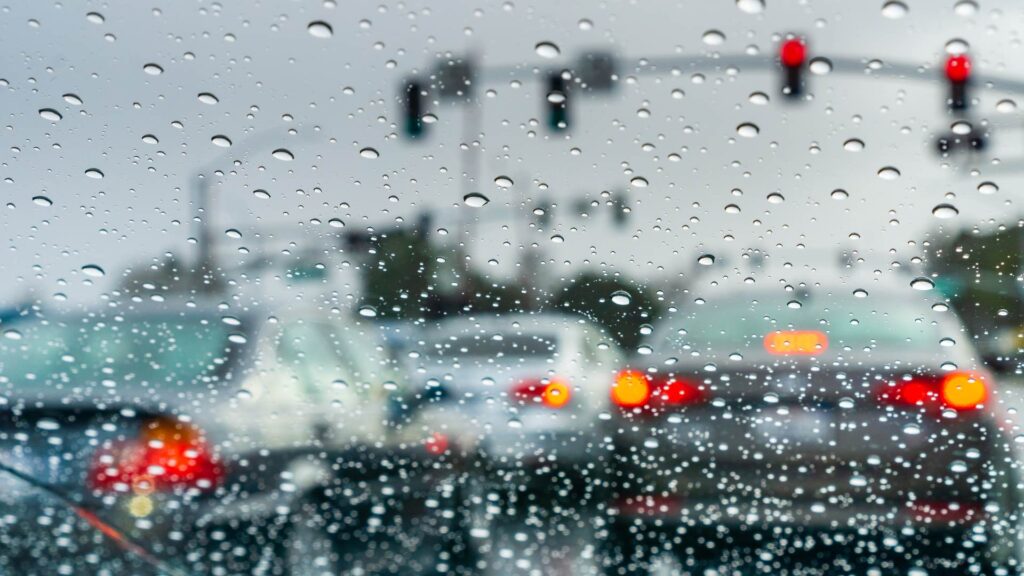
5. Weather Conditions
The Impact of Weather on Driving
Adverse weather conditions, such as rain, fog, snow, and ice, can create hazardous driving conditions by reducing visibility and traction. In Georgia, heavy rain and occasional winter weather are common causes of accidents.
Tips for Driving in Bad Weather
- Slow Down: Reduce your speed to maintain control of your vehicle.
- Increase Following Distance: Allow more space between your car and the vehicle in front of you.
- Use Headlights: Ensure your headlights are on to improve visibility for yourself and others.
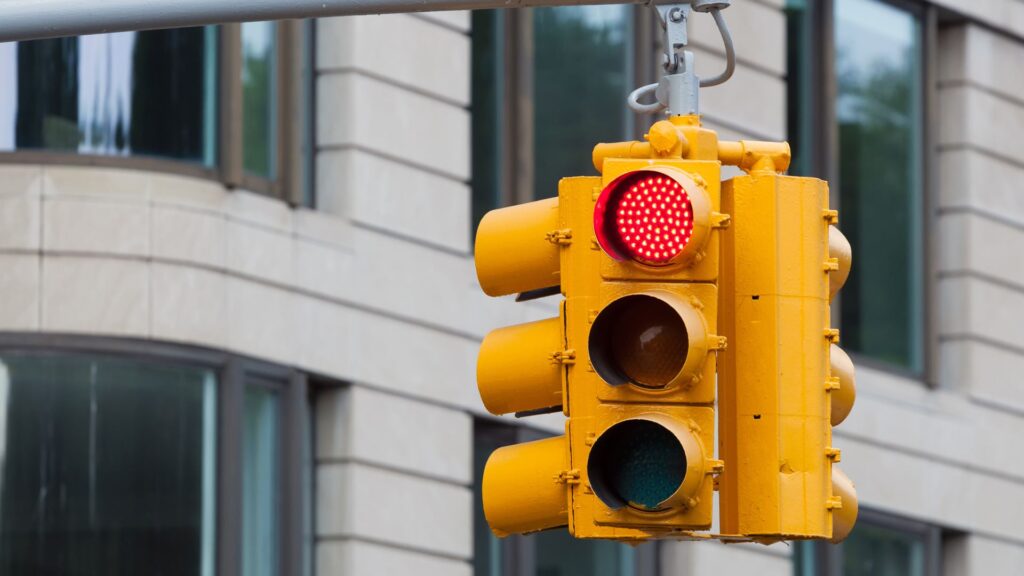
6. Running Red Lights and Stop Signs
The Consequences of Ignoring Traffic Signals
Running red lights and stop signs is a common cause of intersection accidents. These violations can lead to severe side-impact collisions, often resulting in significant injuries or fatalities.
Georgia’s Traffic Signal Laws
Georgia law requires drivers to come to a complete stop at red lights and stop signs. Failing to do so can result in traffic tickets, fines, and points on your driver’s license.
Tips to Avoid Running Red Lights and Stop Signs
- Stay Alert: Pay close attention to traffic signals and signs.
- Approach Intersections with Caution: Slow down and be prepared to stop as you approach intersections.
- Avoid Distractions: Keep your focus on the road and the traffic signals ahead.

7. Tailgating
The Dangers of Tailgating
Tailgating, or following too closely, reduces the time and distance a driver has to react to sudden stops or changes in traffic. This behavior significantly increases the likelihood of rear-end collisions.
Georgia’s Following Distance Law
Georgia law requires drivers to maintain a safe following distance, allowing enough space to stop safely if the vehicle in front suddenly stops.
Tips to Avoid Tailgating
- Use the Three-Second Rule: Ensure at least three seconds of distance between your car and the vehicle in front.
- Adjust for Speed and Conditions: Increase your following distance in poor weather or heavy traffic.
- Stay Patient: Resist the urge to tailgate, even if you are in a hurry.
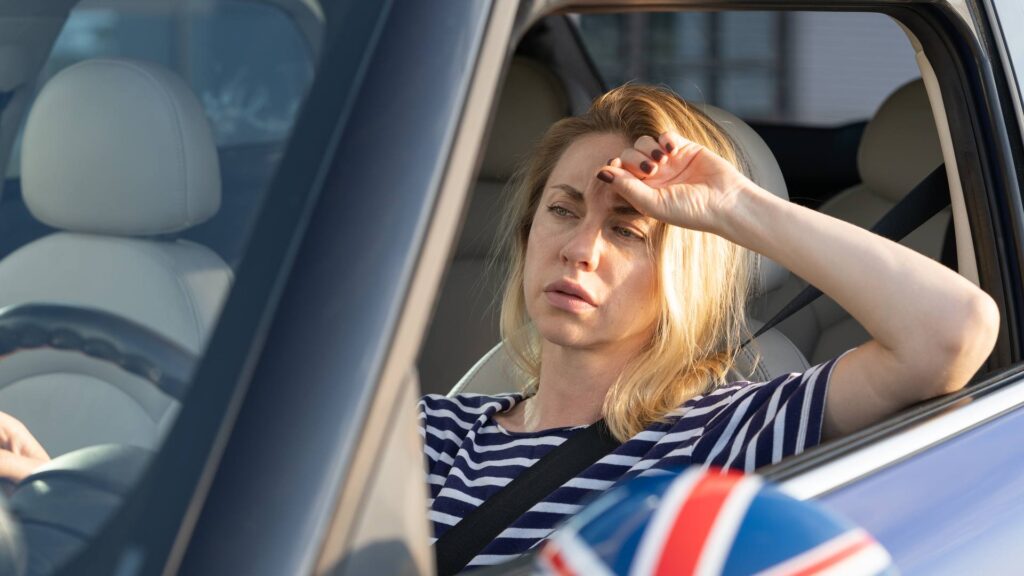
8. Fatigued Driving
The Risks of Driving While Tired
Driving while fatigued can impair judgment, reaction time, and alertness, similar to the effects of alcohol. Fatigued driving is a significant cause of accidents, particularly on long trips or during late-night hours.
Tips to Avoid Fatigued Driving
- Get Adequate Rest: Ensure you are well-rested before embarking on a trip.
- Take Breaks: Take regular breaks during long drives to rest and recharge.
- Avoid Driving Late at Night: Try to avoid driving during hours when you would normally be sleeping.
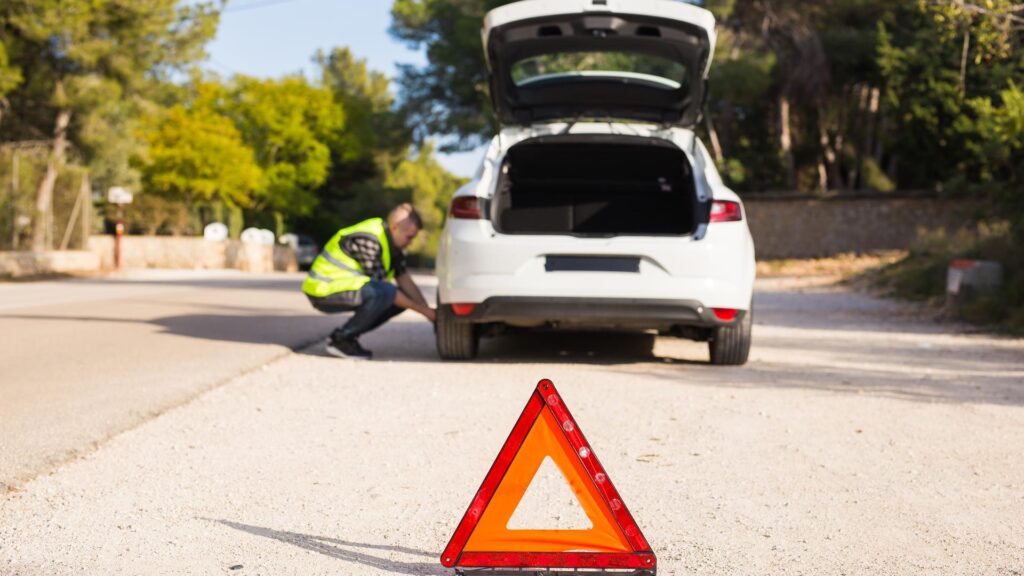
9. Poor Vehicle Maintenance
The Importance of Vehicle Maintenance
Neglecting regular vehicle maintenance can lead to mechanical failures, such as brake failure, tire blowouts, and engine problems, increasing the risk of accidents.
Tips for Proper Vehicle Maintenance
- Regular Inspections: Have your vehicle inspected regularly by a professional mechanic.
- Check Tires: Ensure your tires are properly inflated and have adequate tread.
- Maintain Brakes: Regularly check and maintain your brake system to ensure it is functioning properly.
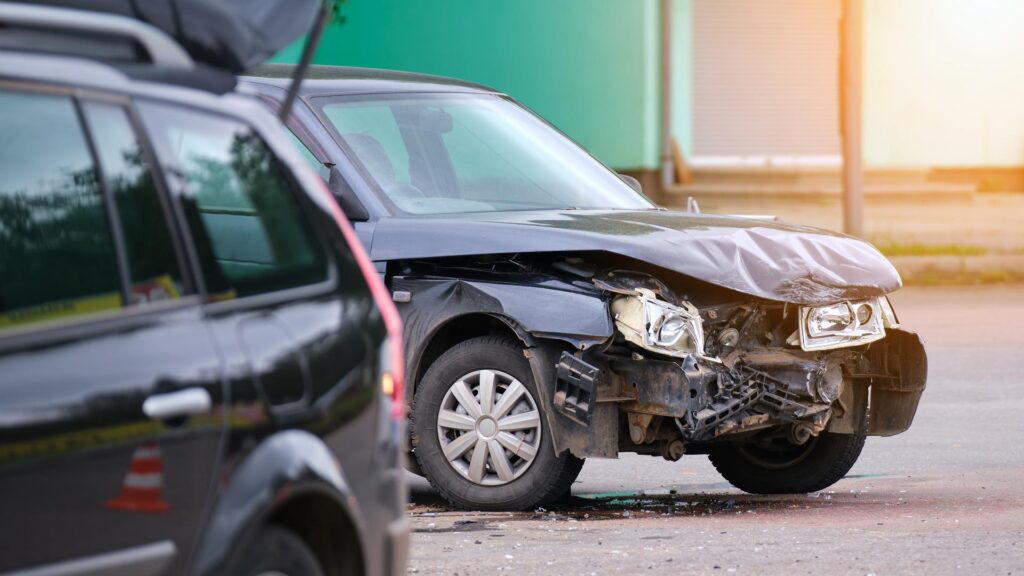
10. Inexperienced Drivers
The Challenges Faced by Inexperienced Drivers
Inexperienced drivers, particularly teenagers, are more likely to be involved in accidents due to their lack of experience and sometimes riskier driving behaviors.
Tips for Inexperienced Drivers
- Practice Defensive Driving: Learn and practice defensive driving techniques to stay safe on the road.
- Avoid Distractions: Keep your focus on driving and avoid using your phone or other distractions.
- Follow Traffic Laws: Adhere to all traffic laws and speed limits to reduce the risk of accidents.
Conclusion
Understanding the top causes of car accidents in Georgia can help drivers take preventative measures to stay safe on the road. By being aware of the risks associated with distracted driving, speeding, drunk driving, and other dangerous behaviors, you can make informed decisions and practice safer driving habits.
If you have been involved in a car accident and need legal assistance, the Rebecca Kay Sapp Law Firm is here to help. Our experienced injury attorneys can provide guidance and support, ensuring you receive the compensation and justice you deserve. Contact us today for a consultation and let us help you navigate the complexities of car accident claims in Georgia.
Frequently Asked Car Accident Questions
What should I do if I am involved in a car accident in Georgia?
If you are involved in a car accident in Georgia, follow these steps:
- Ensure safety and check for injuries.
- Call 911 and report the accident.
- Exchange information with the other driver(s).
- Document the accident scene with photos and notes.
- Contact your insurance company to report the accident.
- Seek medical attention, even if you feel fine.
- Consult with a car accident attorney to understand your rights and options.
How can I avoid distracted driving?
To avoid distracted driving:
- Use hands-free devices for calls.
- Set your GPS before starting your trip.
- Avoid eating while driving.
- Keep your focus on the road and avoid using your phone or other distractions.
What are the penalties for speeding in Georgia?
Penalties for speeding in Georgia vary based on the severity of the offense. They can include fines, points on your driver’s license, and increased insurance premiums. Excessive speeding can also result in more severe penalties, such as license suspension or imprisonment.
How does Georgia’s Hands-Free Law impact drivers?
Georgia’s Hands-Free Law prohibits drivers from holding or supporting a phone with any part of their body while driving. Violating this law can result in fines and points on your driver’s license. Using hands-free technology can help you comply with the law and reduce the risk of accidents.
What should I do if I am hit by a drunk driver in Georgia?
If you are hit by a drunk driver in Georgia:
- Ensure safety and check for injuries
- Call 911 to report the accident and request medical assistance.
- Exchange information with the other driver, but avoid discussing fault.
- Document the accident scene with photos and notes.
- Obtain a copy of the police report.
- Contact your insurance company to report the accident.
- Seek medical attention for any injuries.
- Consult with a car accident attorney to explore your legal options and seek compensation.
How can I prevent fatigued driving?
To prevent fatigued driving:
- Ensure you get adequate rest before driving.
- Take regular breaks during long trips.
- Avoid driving during late-night hours or when you would normally be sleeping.
- Share driving responsibilities with another driver if possible.
What should I do if my vehicle breaks down while driving?
If your vehicle breaks down while driving:
- Safely pull over to the side of the road.
- Turn on your hazard lights to alert other drivers.
- Call for roadside assistance or a tow truck.
- Stay inside your vehicle if it is safe to do so, especially on busy roads.
- If you must exit the vehicle, do so carefully and stand away from traffic.
What are the common signs of poor vehicle maintenance?
Common signs of poor vehicle maintenance include:
- Warning lights on the dashboard.
- Unusual noises or vibrations.
- Difficulty starting the engine.
- Poor braking performance.
- Uneven tire wear or low tread.
- Fluid leaks under the vehicle.
Regular maintenance and inspections can help identify and address these issues before they lead to accidents.
How can inexperienced drivers improve their driving skills?
Inexperienced drivers can improve their driving skills by:
- Taking a defensive driving course.
- Practicing driving in various conditions, such as rain or nighttime.
- Avoiding distractions and focusing on the road.
- Following traffic laws and speed limits.
- Gaining experience gradually and avoiding high-risk situations, such as heavy traffic or unfamiliar roads.

